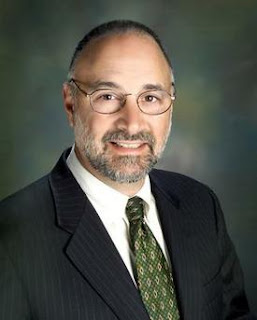
By RICHARD MEEHAN
The Cool Justice Report
www.cooljustice.blogspot.com
Arpil 5, 2009
EDITOR'S NOTE: This column is available for reprint courtesy of The Cool Justice Report, http://cooljustice.blogspot.com
I'm getting ready for jury selection in a malpractice trial.
The goal is to make the flow of evidence appear seamless. Getting to that point requires hours of detailed preparation, but allows for an efficient use of court and juror time.
I've always followed a checklist of tasks. That list has grown considerably over the more than three decades that I have spent as a trial lawyer.
Cases seemed much simpler in those earlier years. Certainly, files were less voluminous. What was once a folder averaging about 3- inches in width has grown to multiple banker boxes of material. Fortunately, computers and access to online research have allowed us to leave the bulky volumes of lawbooks behind.
Maybe we just took easier cases then? Now, as my practice has grown more complex, I am haunted by this vision of lawyer's purgatory. Like Jacob Marley's ghost, bound with the heavy chains and money boxes of his avaricious life, we lawyers will be condemned to drag dozens of banker boxes of paper through eternity, atoning for destroying the world's rain forests with all of the photocopying we have done.
Trial preparation has also become more complex. The simple checklist still guides me: first, I read every document we have accumulated. Next I develop a list of witnesses, their biographical information and a synopsis of what I intend to ask them. Following that we turn to the task of identifying potential exhibits. Our judges now require that lawyers make an effort, in advance of trial, to pre-mark potential exhibits with the appropriate exhibit stickers. In addition, good trial lawyers will attempt to agree in advance on what will be admitted into evidence. Objectionable exhibits are also identified and segregated to await the judge's ruling on their admission, allowing arguments for and against their admission before evidence commences.
Once all of the documents are identified and marked, we next turn to witness preparation. Pre-trial witness interviews are essential. I start with the client and pretend that we've never discussed the matter before. I ask the client to tell me the entire tale from scratch. This has two net effects: one, it prepares the client to be able to relate the story to the jury; and, two, invariably, I learn something that prior interviews or depositions may not have revealed. In certain instances we will even put the client through a dry run of direct examination, with another firm member pretending to be opposing counsel conducting a cross-examination.
Satisfied that my witnesses and exhibits are ready I next turn to preparing written requests to the judge to include in the jury instructions. Any potential legal issues are researched and trial Briefs are prepared in advance. I find that handing a judge a brief memorandum of law on a critical point not only aids the court, but also demonstrates to the judge the extent of the effort we have put into the trial. Jury voir dire questions are prepared and notes for potential final argument are drafted. Last, I prepare my opening statement.
I am now ready for the opening bell. Well, not really.
Now I have to be prepared to deal with the witnesses and jurors who post on Facebook, MySpace, Twitter, and other social networking sites. Jurors who bring their smartphones present a new wrinkle in trial practice. There is no shortage of new variables, making me confront that prospect of the court and lawyers losing control of the presentation of information. When that happens, the parties can be denied due process.
At times like this, I lean on my high school English teacher, who often quoted Alexander Pope: "A little learning is a dangerous thing; drink deep, or taste not the Pierian spring [of knowledge and inspiration]."
Bridgeport attorney Richard Meehan Jr. was the lead defense counsel for former Bridgeport Mayor Joseph Ganim's corruption trial. Meehan is certified as a criminal trial specialist by the National Board of Trial Advocacy since 1994 and serves on the organizations Board of Examiners. He is a Charter Fellow, Litigation Counsel of America -- Trial Lawyer Honorary Society. Meehan has also obtained multi-million dollar verdicts and settlements in complex medical and dental malpractice and personal injury litigation. He is a past president of the Greater Bridgeport Bar Association and appears regularly on Court TV. His column also appears in the Sunday Norwich, CT Bulletin. Website, www.meehanlaw.com
No comments:
Post a Comment